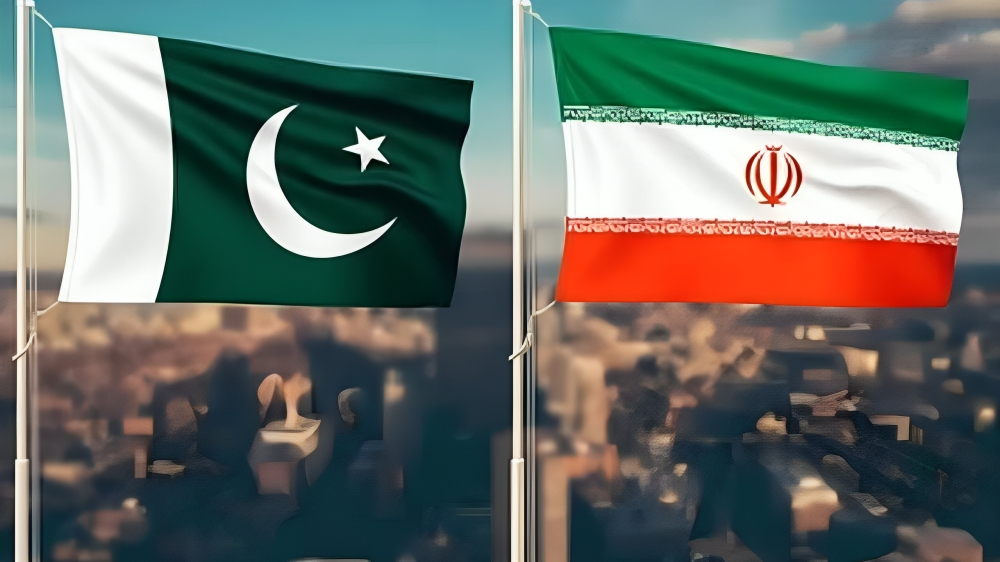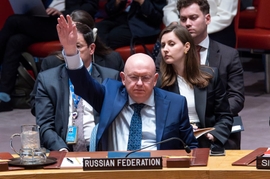Iran’s Foreign Ministry Spokesman, Nasser Kanani, has strongly criticized Pakistani airstrikes targeting hideouts of Baloch militants in Iran’s southeastern province. This comes a day after Tehran launched attacks on Pakistani territory.
Kanani emphasized that the charge d’affaires of the country’s embassy in Tehran was summoned to the Ministry of Foreign Affairs to officially protest and request an explanation from the Pakistani government. This was reported by Iran’s Mehr news agency on January 18.
According to Iranian local officials, at least nine people, including “three women and four children, all non-Iranian citizens,” were killed in the attacks near the Pakistani border. An explosion was heard, followed by a drone and missile attack on the Shamsar area in the Saravan city of the province.
The Pakistani foreign ministry stated on the same day that “Pakistan undertook a series of highly coordinated and specifically targeted precision military strikes against terrorist hideouts in the Sistan-Baluchistan province of Iran. A number of terrorists were killed during the intelligence-based operation.”
During a phone conversation with Turkish Foreign Minister Hakan Fidan, Iran’s Foreign Minister, Hossein Amir-Abdollahian, described the fight against terrorist groups as a “shared responsibility” of all regional states. The Turkish foreign minister, in turn, emphasized the necessity of preserving and strengthening brotherly relations among regional countries. On January 18, the Turkish Foreign Ministry urged Iran, Iraq, and Pakistan to show restraint, expressing concern about escalating regional tension.
This follows Iran’s missile and drone attack on January 16, targeting “two key strongholds” of the extremist militant group Jaish al-Adl in the border town of Panjgur in Pakistan’s Balochistan province. Pakistan’s Foreign Ministry warned Iran of “serious consequences” over a cross-border attack that killed two children in its province. Pakistan recalled its ambassador from Iran and blocked Tehran’s envoy from returning to Islamabad after the airstrike.
In a phone call with his Iranian counterpart, Hossein Amir-Abdollahian, Pakistan’s caretaker Foreign Minister, Jalil Abbas Jilani, condemned the attack, stating that Iran’s incursion into Pakistani territory constituted a “serious violation” of sovereignty and international law.
Jaish al-Adl (“Army of Justice”), designated as a terrorist group by Iran, was founded in 2012 and operates in southeastern Iran and across the border in Pakistan. On December 15, 2023, Jaish al-Adl attacked a police station in Rask city, resulting in the loss of at least 11 police officers’ lives. In response to similar attacks, Iran had warned of potential cross-border raids into Pakistan.
Iran has long suspected Pakistan of providing a haven for insurgents and fostering instability on Iran’s southeastern border, possibly in coordination with Saudi Arabia. For over twenty years, Baluch nationalists have engaged in a prolonged, low-intensity insurgency within Iran’s southeastern province of Sistan-Baluchestan, seeking independence.
This recent incident follows Iran’s airstrikes on Iraq and Syria on January 15, resulting in the deaths of at least four civilians and injuries to 17 others. Iran’s Islamic Revolution Guards Corps reported launching ballistic missiles, targeting bases of individuals linked to the “terrorist” attacks in Iran’s Kerman on January 3, where at least 93 people were killed and 280 injured.







 President Ilham Aliyev shed light on the evolving contours of the peace process with Armenia during an international conference in Baku this week. ...
President Ilham Aliyev shed light on the evolving contours of the peace process with Armenia during an international conference in Baku this week. ...
 Azerbaijan and Armenia started the process of demarcation of their border on Tuesday, with the installation of the first border markers based on ge...
Azerbaijan and Armenia started the process of demarcation of their border on Tuesday, with the installation of the first border markers based on ge...
 Iranian President Ebrahim Raisi expressed Tehran’s readiness to participate in significant development projects in Sri Lanka during the inauguratio...
Iranian President Ebrahim Raisi expressed Tehran’s readiness to participate in significant development projects in Sri Lanka during the inauguratio...
 Iran and Pakistan have signed eight cooperation documents in various fields, and agreed to strengthen ties to fight terrorism in the region.
Iran and Pakistan have signed eight cooperation documents in various fields, and agreed to strengthen ties to fight terrorism in the region.
 As the conflict between Ukraine and Russia escalates, the strategic importance of Kharkiv, Ukraine's second-largest city, has come sharply into focus.
As the conflict between Ukraine and Russia escalates, the strategic importance of Kharkiv, Ukraine's second-largest city, has come sharply into focus.



